The Maltese can easily be regarded as one of the most resilient peoples in the world – they have remained steadfast, proud and patriotic in the face of an ever-changing array of rulers and strong outside influences.
In spite of being conquered, subjugated and led over the centuries by the powerful nations of the times – and bearing faces that even now reflect some of that past, with features recalling the Romans, Arabs and Phoenicians – the Maltese have doggedly clung to insular individuality. With roots planted firmly in a group of tiny islands, whose total area adds up to no more than 316 sq km (122 sq miles), there is a strong sense of identity born out of a mixture of self-preservation and stubbornness, qualities the Maltese have in abundance. And the same applies to Maltese emigrants settled abroad.
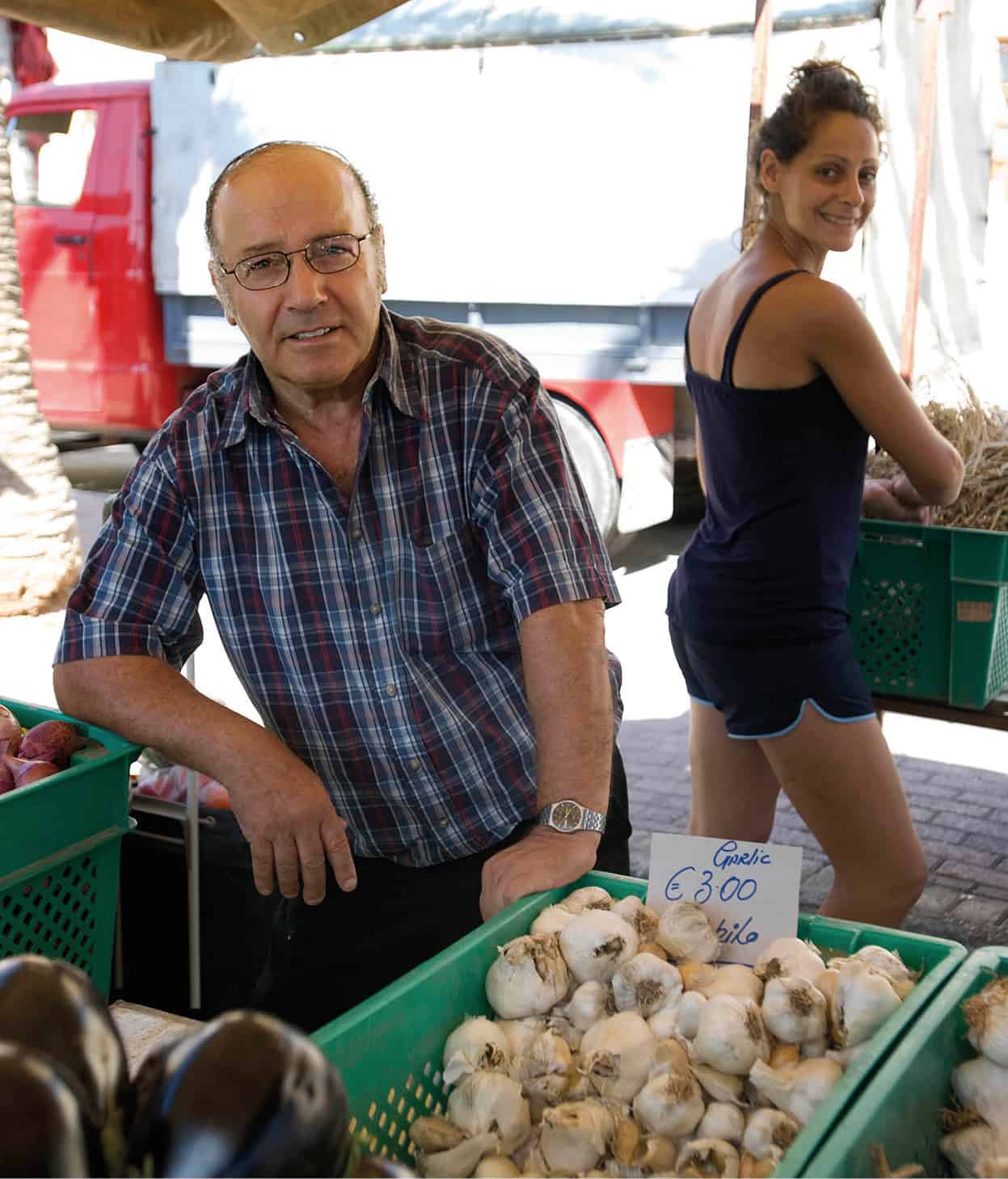
Traders at Marsaxlokk Market.
Sylvaine Poitau/Apa Publications
Family
Family remains the most important part of life in Malta and, for the majority of the population, getting married and having children remains a priority. Most young men and women will find a spouse from within their village or extended community, and big, lavish wedding ceremonies are the order of the day, flamboyantly celebrating the start of a new couple’s life together.
Regular family events are also the norm. Most Maltese are never happier than when sitting around a large table and enjoying a sumptuous meal with their relatives. The old, young and very young muddle together, relishing each other’s company and sharing stories. There remains a genuine respect for the family’s elders and their wisdom, and it is still common for the nanna or nannu to reside with the younger generations into their retirement.
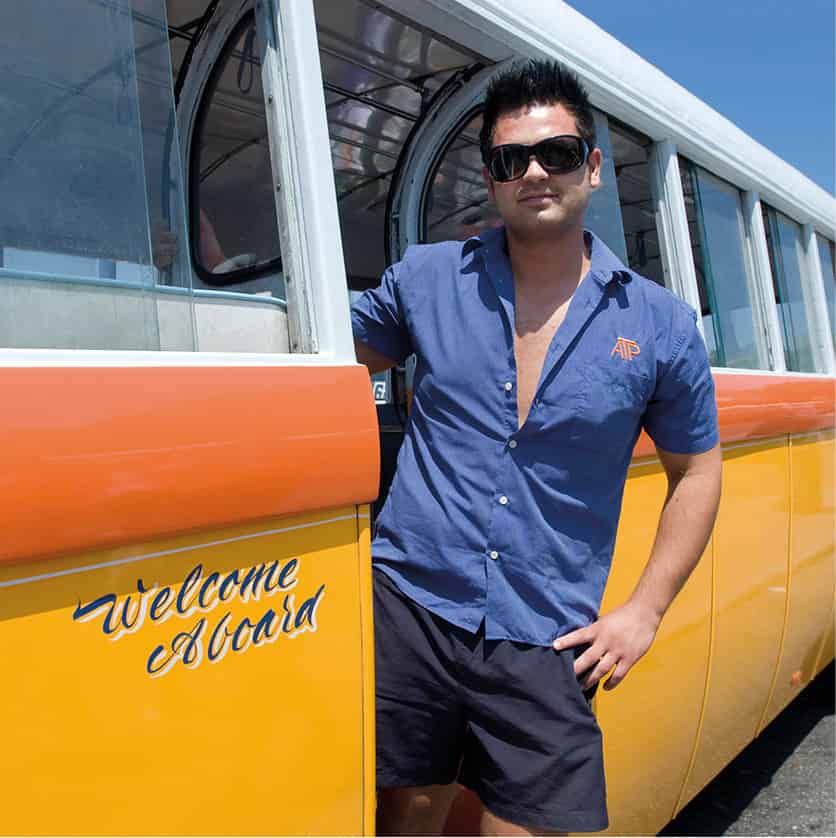
Bus driver.
Sylvaine Poitau/Apa Publications
House-proud
The Maltese are proud of their homes. These are spotlessly clean inside, with gleaming, patterned marble-tiled floors, and everything in its prescribed place. Almost everyone, whatever their social level, maintains a formal sitting room, to be used only when guests are invited to the house. It is here that wealth and social achievement can be demonstrated. Even in the most unsophisticated villages, these rooms will have furniture made to order, sofas and armchairs and wall units to hold whimsical china figurines and framed pictures.
However, most locals still take a disproportionate amount of pride in their homes when compared with their localities. Women can often be seen sweeping dust and dirt out of their homes and into the street, and national campaigns are now in place to encourage locals to take as much pride in their country as they do in their belongings.
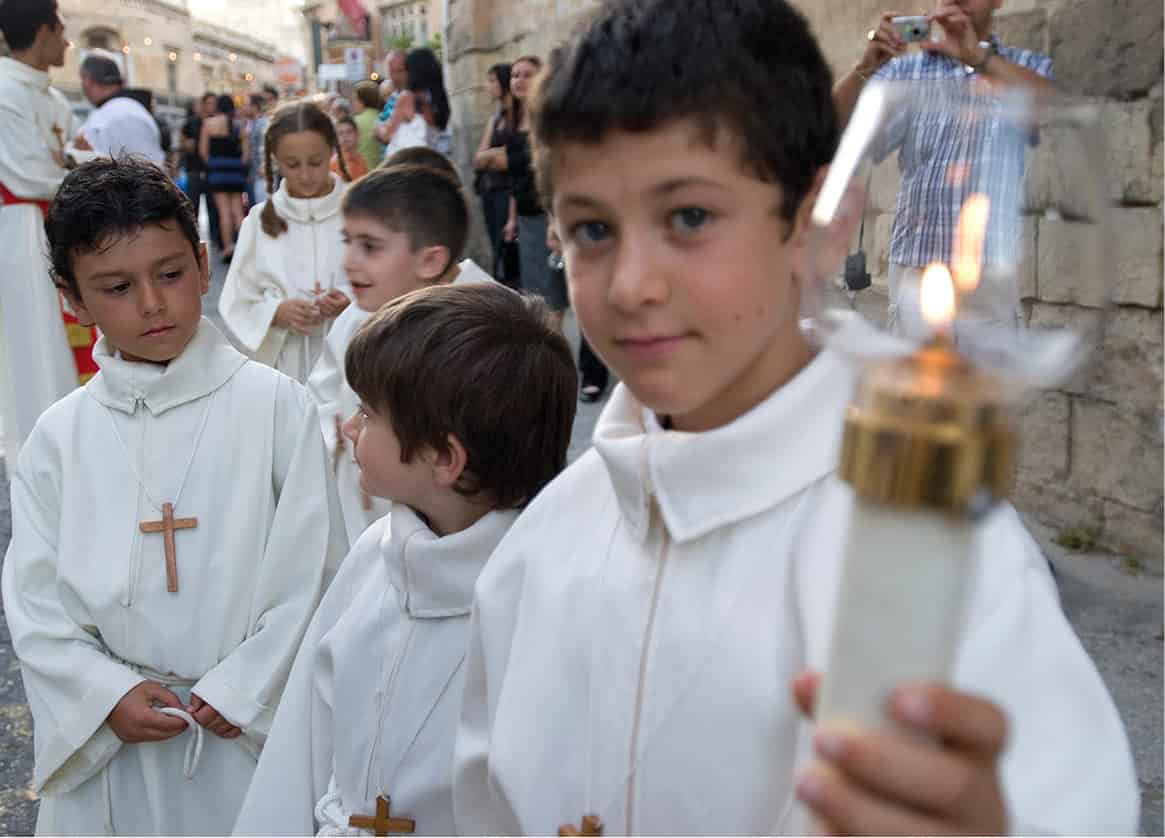
A Catholic festa procession in Sliema.
Sylvaine Poitau/Apa Publications
Politics
Up to the mid-1990s, politics played an important part in daily life. All Maltese were politically aware and were “born” into the party supported by their parents, an allegiance that normally lasted a lifetime, for better or worse. Businesspeople expected to do better when their side was in power. As the governments changed, so did the people in key positions in the civil service and in government-run organisations. As bureaucratic power changed, so were new ropes oiled. The “floating voter” status hardly existed.
However, the pattern began to change dramatically from 1995 onwards when it became evident that increasing numbers of youths were more independent from the political influence of their parents and were definitely much less interested in politics and political issues. The zenith of cross-voting was reached in the 2003 general election when thousands of Malta Labour Party (MLP) supporters cast their votes in favour of the pro-EU Nationalist Party, to defy the MLP’s anti full-EU-membership policy, thus assuring Malta of full membership of the European Union.
Home and Away
There is a population of about 420,000 on the Maltese Islands, with an equal number in Australia, Canada, the United Kingdom and the United States of America. These are the emigrants and families of Maltese who set sail for the lands of golden promise in the days of expansive migration at the end of World War II, when hope was offered to poorer communities.
Many, homesick after making their fortunes in a modest manner, return to build modern villas that are named in fond memory of chances given: Villa Wallaby, Melbourne Court, Brentford House, Casa Orlando or, simply, Bondi.
Religion
For many years, the Church played a key role in life, both secular and political, making its views known on all key issues as well as running many of the better schools. In election years, parish priests often exhorted congregations to vote for the Nationalist Party. But, as has happened elsewhere in Europe, the sway of the Church has diminished. The annual parish festa is still the most important event in the calendar, but church attendance, although still proportionately among the highest in Europe, is declining.
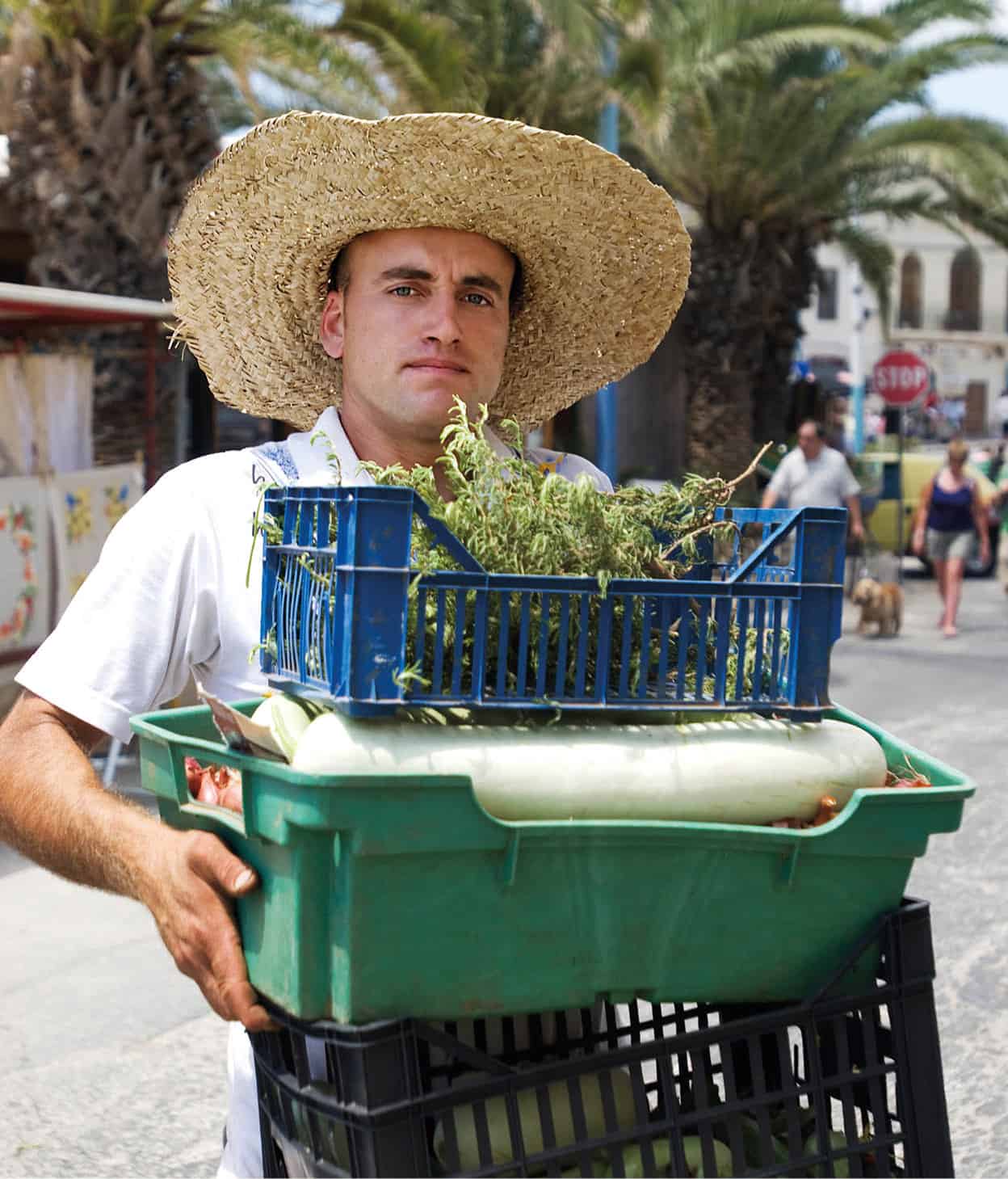
Off to the market.
Sylvaine Poitau/Apa Publications
Brain drain
A welcome benefit of the islands’ accession to the EU was the fact that the Maltese can now work across Europe at will, as well as study more easily at foreign institutions. This exciting development opened doors for many young people, and a good number will now choose to spread their wings overseas. While a great opportunity for Malta’s youth, it has created something of a brain drain for the islands, with many of the most accomplished or promising young people leaving for Britain, Belgium (the seat of the EU, where Maltese is recognised as an official language) or beyond. The government has recently launched a variety of initiatives to encourage career development for young people choosing to stay local, especially in the booming IT industry.
The tourist influence and internationalisation
Although the Church still has a very strong influence on a good portion of the population, parish priests have ceased to function as moral policemen, with the ability to prescribe and enforce standards of conduct within their territory. And the fact that foreign visitors now easily outnumber local people (in 2014 a record 1.7 million tourists visited the islands) has undoubtedly had a greater influence than most Maltese would care to admit on their attitude towards both unorthodox behaviour and established authority.
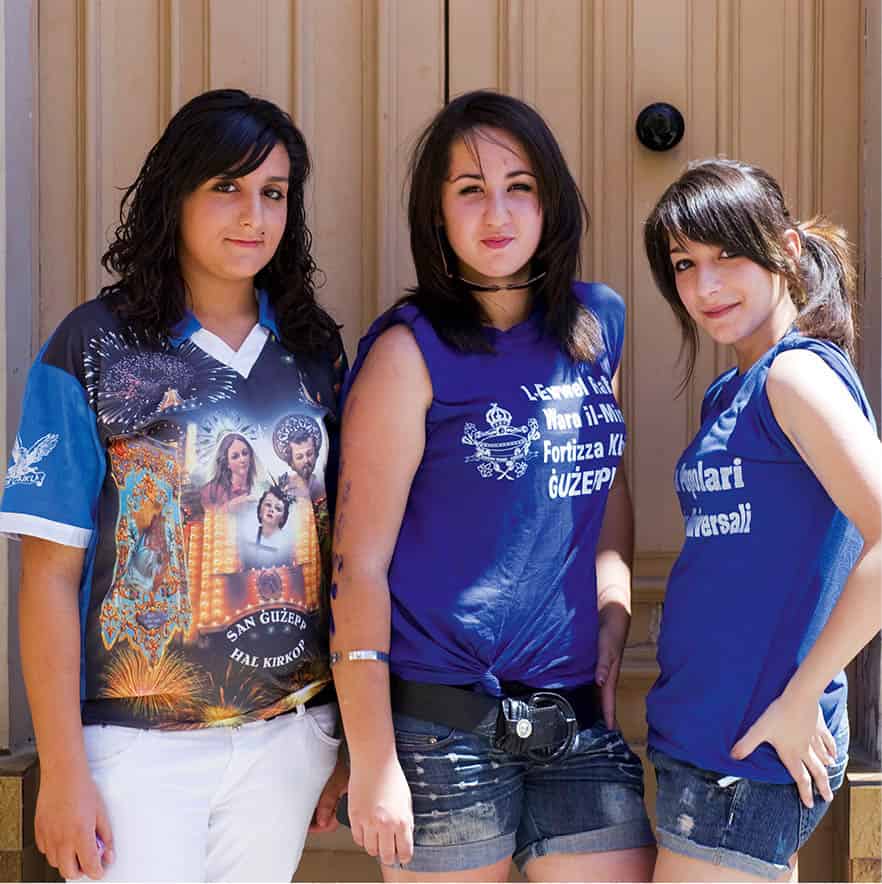
Young Maltese women at festa time.
Sylvaine Poitau/Apa Publications
Political Choices
Surprisingly, despite the traditional Maltese passion for politics, there are only two major parties from which to choose – Nationalist or Labour. However, a newer Green party (known as Alternativa) is slowly beginning to make its mark and establish itself as a serious contender. In the past it was automatic for young people simply to vote the way their family did, as most were either staunchly loyal to one party or another following the political upheaval of the 1980s. Today, everyone feels freer to make decisions based on manifestos and politicians’ promises rather than automatically sticking to party colour or family tradition.
Yet to every cloud there is a silver lining, and perhaps now there is more opportunity for directly confronting modern-day issues. The islands have come a long way since the days when girls were whisked away by police for wearing bikinis.
Contraception and sex before marriage are now reasonably accepted subjects for discussion and, while the clergy may insist on decorum in dress whilst walking through the streets and in the churches, topless bathing is tolerated on some beaches, despite it being illegal. Nude bathing is also against the law and those who bare all may well find themselves facing prosecution.
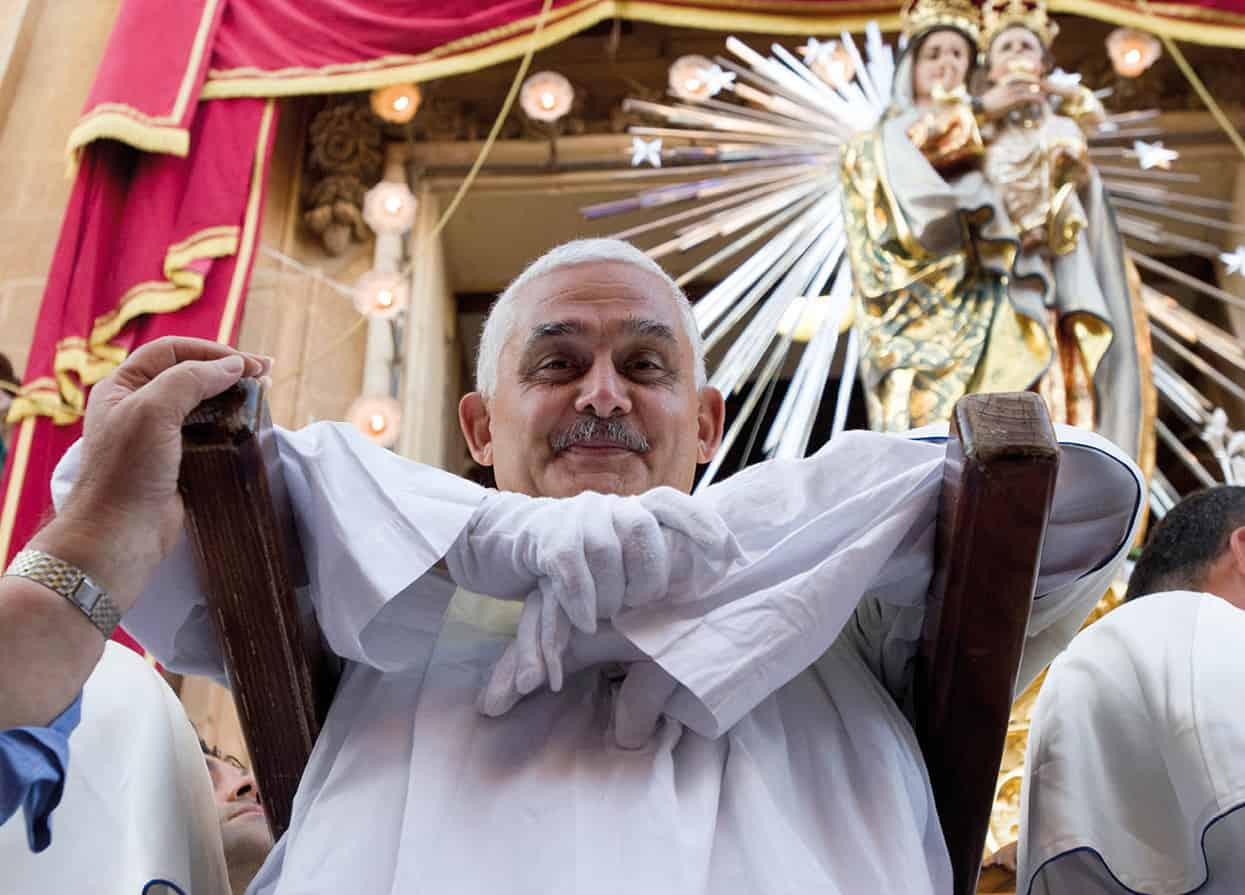
Another procession in Sliema.
Sylvaine Poitau/Apa Publications
The divorce debate
May 2011 saw a big milestone for Malta, when 53 percent of the voting population opted to legalise divorce in a national referendum (the last time divorce was legal here was during Napoleon’s brief rule, and the law was soon overturned). Previously, Malta was one of only two countries in the world where divorce was illegal (the other being the Philippines) and locals had to travel overseas to get one. Alternatively, they could seek a legal separation, or a church annulment, but the latter was a complex procedure that could take up to nine years and cost thousands of euros.
Throughout the debate, both the campaigning “yes” and “no” camps (the latter heavily endorsed by the church) fought to get their views across and the margin was slim until the end. MPs finally passed the law through Parliament with 52 votes to 11 and it took effect in October 2011.
Joie de vivre
The Maltese, although industrious, are determined to enjoy life to the full. They delight in any opportunity to throw a party and there is a ribald sense of humour devoted, for the most part, to double entendre. Malti may be a relatively unsophisticated language but it gives ample opportunity for double meanings. As a result, political and social farce is probably the most popular form of entertainment, both on TV and at Maltese-speaking theatre venues. The Maltese love nothing more than to poke fun at those in the limelight, and blogging is now popular, with many taking to cyberspace to express themselves anonymously. These, usually written in Maltese or Minglish (a witty blend of Maltese and English), tend to be hilarious, and poke fun at the government, the opposition and the Church.
On the minus side, the Maltese, in true Latin tradition, can be hard on each other, prone to jealousy and quick to take advantage or pick a quarrel. A crossed Maltese stays cross.
Tradition vs Modernism
Beautiful old buildings standing beside modern high-rises, and centuries-old traditions jostling with modern-day approaches. How do the Maltese Islands blend the two?
The Maltese Islands have always been heavily influenced by the outside world, whether that was by cultural differences introduced by their many and varied rulers throughout the years or, more recently, by tourists who brought their more cosmopolitan ideas into the country’s traditionally conservative ways of life. It hasn’t always been easy to blend the two.
Today, that conflict of old vs new still reigns and there is a feeling of change in the air. As a result, holiday-makers who might have been here a decade or so ago will probably not recognise many of the more built-up areas.
Nevertheless, village life, within the core of each town, remains traditional. Life tends to revolve around the local church and its calendar, with feast days taking pride of place among the picturesque hamlets made up of little houses of character. If this is the Malta that you want to experience, head to traditional villages such as Rabat and Siggiewi in Malta, or Nadur in Gozo. Here the pace of life feels authentically Mediterranean and very far removed from that of the cities. You may even spot a key hanging in a front-door lock – a level of trust that demonstrates that some Maltese still feel as though they can invite the whole world in – although, admittedly, this is changing fast. In areas such as these, religion and its practices are still followed to the letter, and many modern-day topics of discussion, such as abortion and gay marriage, are considered extremely distasteful.
Contrarily, in the more cosmopolitan areas of the islands, such as Sliema and St Julian’s, very little is taboo today – whether that’s gay bars, cohabiting couples or “gentlemen’s clubs”, all of which would have raised more than a few eyebrows less than a decade ago. The EU has certainly played its part, with more and more foreigners choosing to base themselves here and to integrate within local life.
The IT and iGaming industries have also boomed, bringing with them thousands of young, hip professionals, keen to take full advantage of the benefits that such growing industries can offer to employees. As a result, the expat community has exploded, creating an interesting social crowd. This has led to more and more openings of upmarket restaurants, bars and clubs, and has pushed prices up in many parts. In fact, Malta recently registered the highest cost-of-living increase in the eurozone area.
That said, the impact of such rapid change has been considerable and the islanders now want for nothing; vast ranges of international products line supermarket shelves, the health-care system is one of the best in the Mediterranean, and low-cost airlines have made it easy to travel to many parts of the world at the drop of a hat from Malta. In fact, it has become customary for Maltese people to holiday abroad at least once or twice a year.
So, in many ways, the islands feel as if they are on the cusp of something great – teetering between old and new, tradition and modernity, with older generations clinging to the past while youngsters strive to propel themselves into the future and achieve the same goals as their mainland European peers. Now it just remains to be seen to what extent modern Malta will continue to develop and balance all angles in the next phase of its multi-faceted existence.
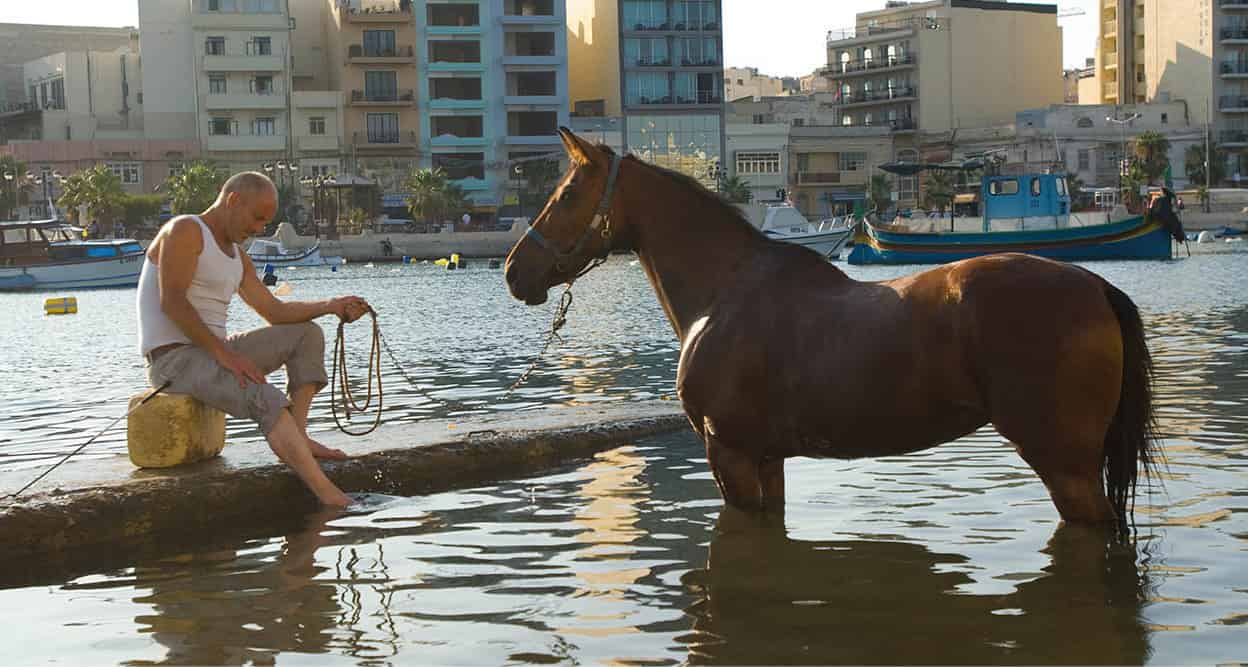
Cooling off, Maltese style.
Sylvaine Poitau/Apa Publications